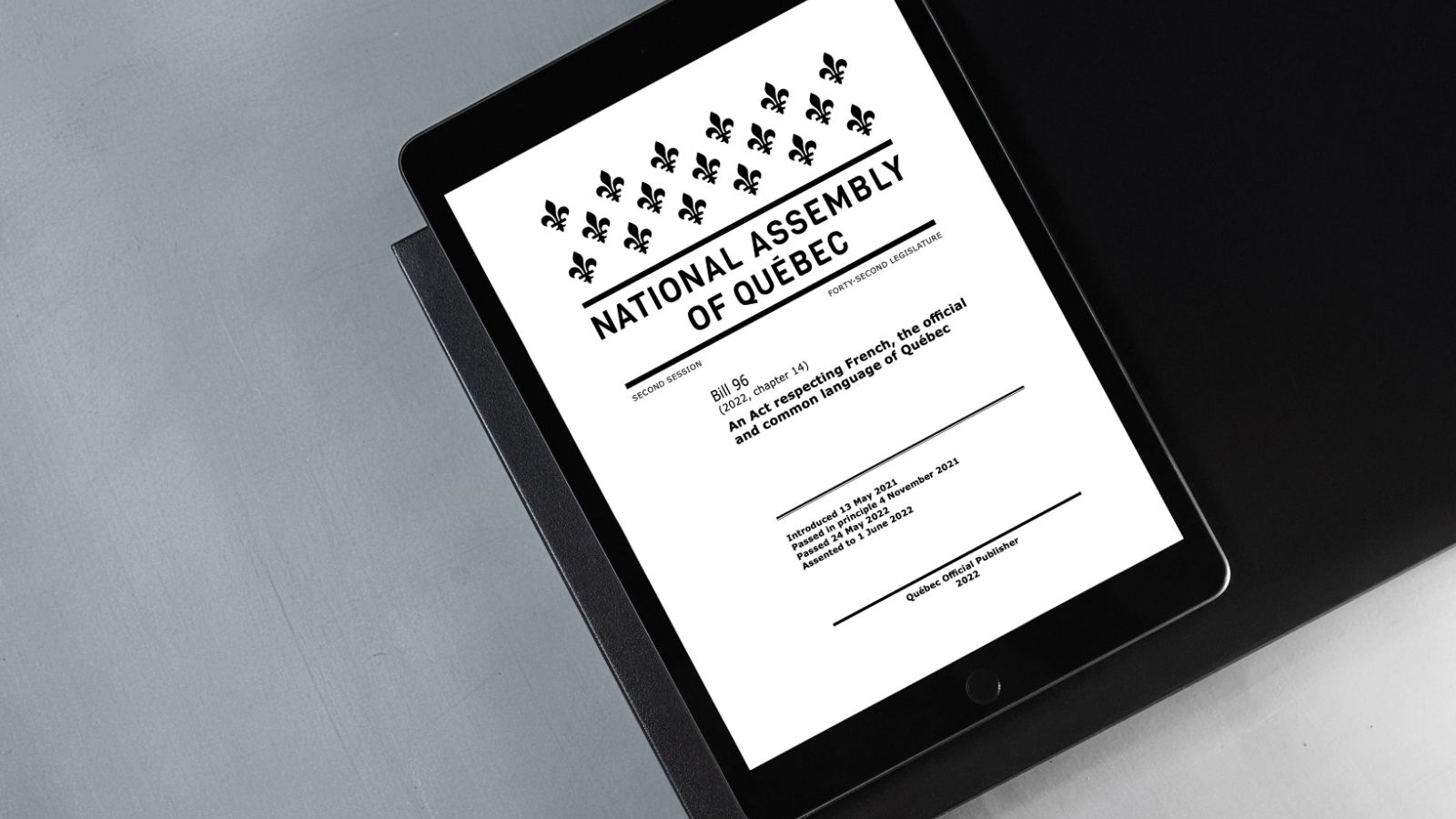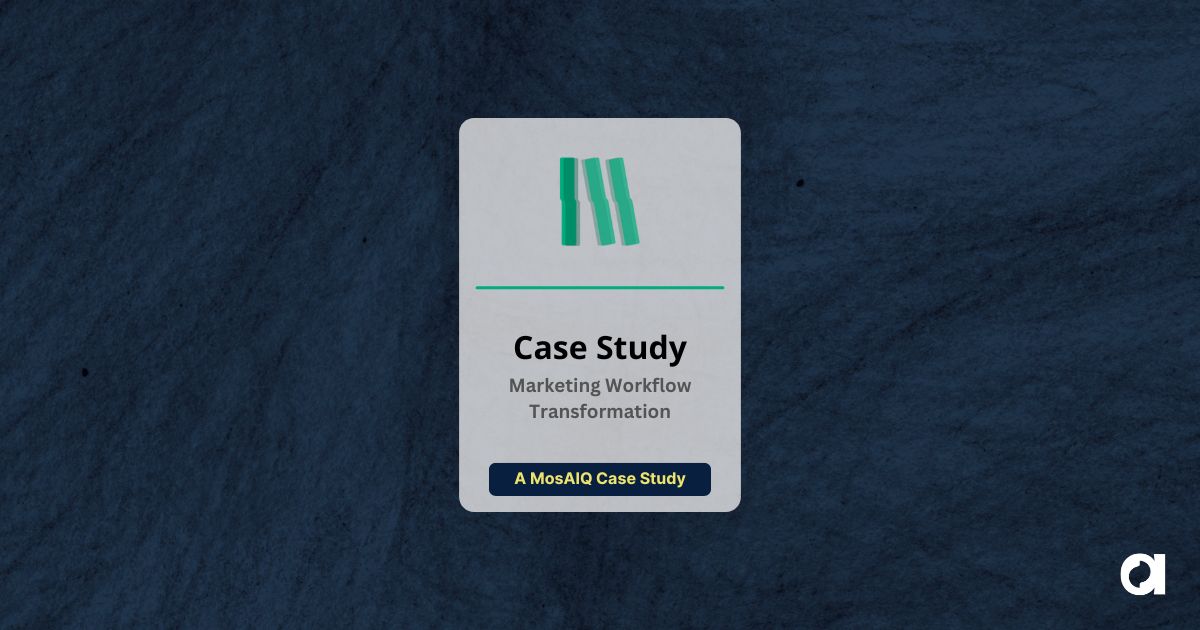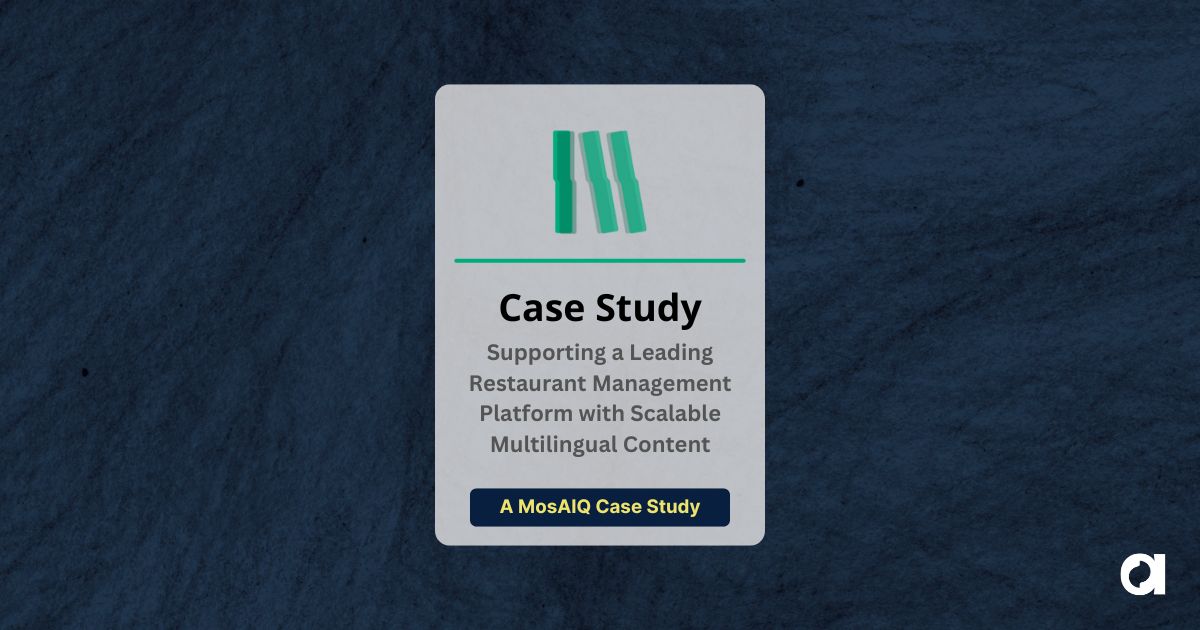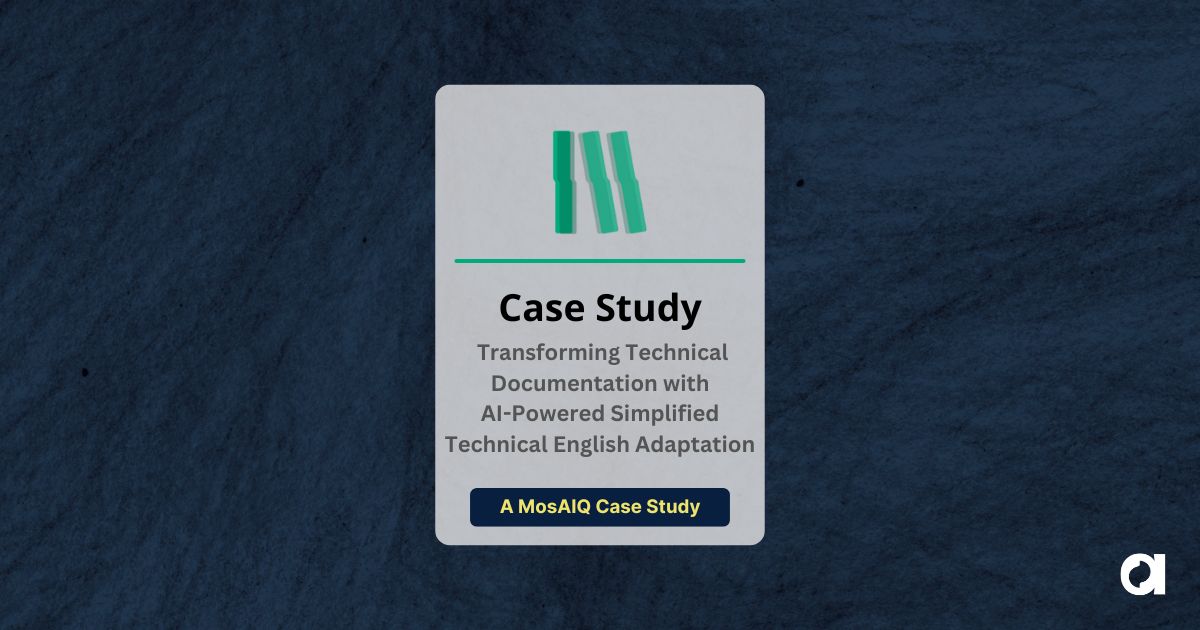If you’re doing business in Quebec, Bill 96 has likely been on your radar for months.
The legislation introduces stricter French-language requirements, covering everything from contracts and workplace communication to product labels and advertising. With the June 1, 2025 compliance deadline quickly approaching, businesses across industries are reviewing their content and workflows to meet Quebec’s reinforced linguistic standards.
Effective translation management is essential to compliance. It enables organizations to meet regulatory expectations, maintain operational efficiency, and communicate clearly with Quebec’s French-speaking community. Companies that take a proactive approach not only ease their transition but also strengthen their market position in Quebec by showing a real commitment to the French language and culture.
Let’s take a closer look at the details in Bill 96 as the law comes into force.

French Takes Center Stage in Quebec’s New Language Laws
Here’s Bill 96 explained: the law reinforces French as the standard for business operations in Quebec, affecting contracts, workplace communication, advertising, and customer interactions. Companies must comply with specific language requirements that apply across multiple areas of business. Failing to do so can result in formal notices, public disclosure, and fines from the Office québécois de la langue française (OQLF), the government body responsible for enforcing language laws in Quebec.
Workplace Communication and Documentation
Companies with 25 or more employees must communicate with staff in French. This includes training materials, HR policies, internal memos, and work-related correspondence. Digital tools and software used by employees must also be available in French when a French version exists.
Contracts and Business Documentation
Standard form contracts, service agreements, financial documents, purchase orders, and internal templates must be provided in French. Versions in other languages may be offered, but the French version must serve as the official and legally recognized document in any multilingual contract.
Public Signage, Advertising, and Customer Interactions
Stakeholders must use French across all public-facing materials. This includes packaging, product labels, websites, advertisements, social media messaging, in-store signage, and promotional displays. Online materials must be fully available in French, not just partially translated or redirected. Non-French trademarks may be used if no registered French equivalent exists, but accompanying text must be translated. In many cases, French must also appear first or be more prominently displayed than other languages, especially on signage, packaging, and displays.
For firms with 25 or more employees, these obligations may also include registration with the OQLF and participation in formal Francization programs.
Bill 96’s Impact on Business: Why Translation Planning Matters
Translation plays a fundamental role in complying with Canada’s Bill 96, but it’s not limited to producing French-language versions. The challenge for most organizations is building a process that supports translation from the ground up.
Without a plan, teams often work in silos. That creates duplication, inconsistent output, and missed details that can delay progress or introduce risk. It also duplicates costs and makes it harder to maintain accuracy over time, especially for entities managing updates across multiple teams or departments.
A centralized translation process helps teams maintain consistency and avoid versioning issues across departments. Working from common templates and terminology reduces rework and supports faster, more accurate updates.

Translation, Not Triage: Getting Ready for Canada’s Bill 96
Preparing for Bill 96 means more than flagging what needs translating. Businesses need a defined process that aligns teams, reduces redundancy, and keeps compliance on track.
Start with a content audit. Look for materials that are reused often, passed between departments, or published in multiple formats. These are the areas where inconsistencies tend to multiply if translation isn’t coordinated from the start.
From there, create a framework to manage translation at scale. Centralized glossaries, style guides, and naming conventions help maintain clarity across departments and reduce versioning issues. The more teams involved, the more valuable that shared structure becomes.
Automated translation tools can support high-volume needs, but expert review remains essential for legal and regulated content. Structured workflows with approval steps and traceability reduce rework and support audit readiness.
This kind of structure also supports governance. Documented workflows, version control, and audit trails reduce the risk of errors and provide proof of compliance. This is especially important for businesses in regulated sectors or those subject to OQLF review.
Putting a structure in place early reduces rework and helps teams track updates and respond to regulatory changes more efficiently, including any future amendments to Bill 96.
The Road Ahead: Staying Compliant as Content Evolves
Once your initial compliance work is complete, the focus shifts to keeping it that way. Translation needs to keep pace with your business as you update HR materials, revise legal documents, or launch new marketing campaigns.
A regular review cycle helps teams coordinate updates and identify translation needs before gaps appear. When stakeholders know how to flag updates for translation, it’s easier to stay compliant without slowing things down. This can be as simple as adding translation steps to your planning workflows or assigning clear ownership for update tracking.
Training across teams builds fluency in what needs to be translated and when. When people understand how French-first requirements affect their work, it becomes easier to maintain consistency and avoid costly revisions later.
The goal here isn’t perfection. It’s creating a system that keeps translation aligned with your business as it grows and changes.
Translation Strategy is Business Strategy
Bill 96 is clearly changing how companies’ structure and manage communication in Quebec. But organizations that treat this law as more than a scramble to meet a deadline are already seeing broader benefits. Translation, when handled strategically, reduces friction across teams, improves quality, and makes future updates easier to manage.
Bill 96 is an opportunity to put systems in place that continue to work as your business grows—whether you’re expanding product lines, updating internal policies, or entering new markets where language matters.
Companies that make translation part of their operational foundation will be better positioned to grow, adapt, and communicate clearly, whatever comes next.
Need to Stay Compliant in Quebec?
Contact us about how we support long-term translation strategies that meet legal requirements and scale with your business.
 Robert Brodowicz
4 min. read
Robert Brodowicz
4 min. read
If only every document translation were 100% accurate 100% of the time. Unfortunately, we know this isn’t the case (yet). Human professional translators are a crucial resource for your translation and localization processes, but they are still human, and because of this your process is prone to human errors, both subjective and objective. When TM […]

 Argos Multilingual
6 min. read
Argos Multilingual
6 min. read
Accessibility is a basic human right. When public spaces and services are designed without everyone in mind, people are excluded from the care, information, and opportunities they need. Localization helps address these gaps by breaking down language barriers and tailoring services to meet the needs of varied populations. By adapting content and services to real-world […]











